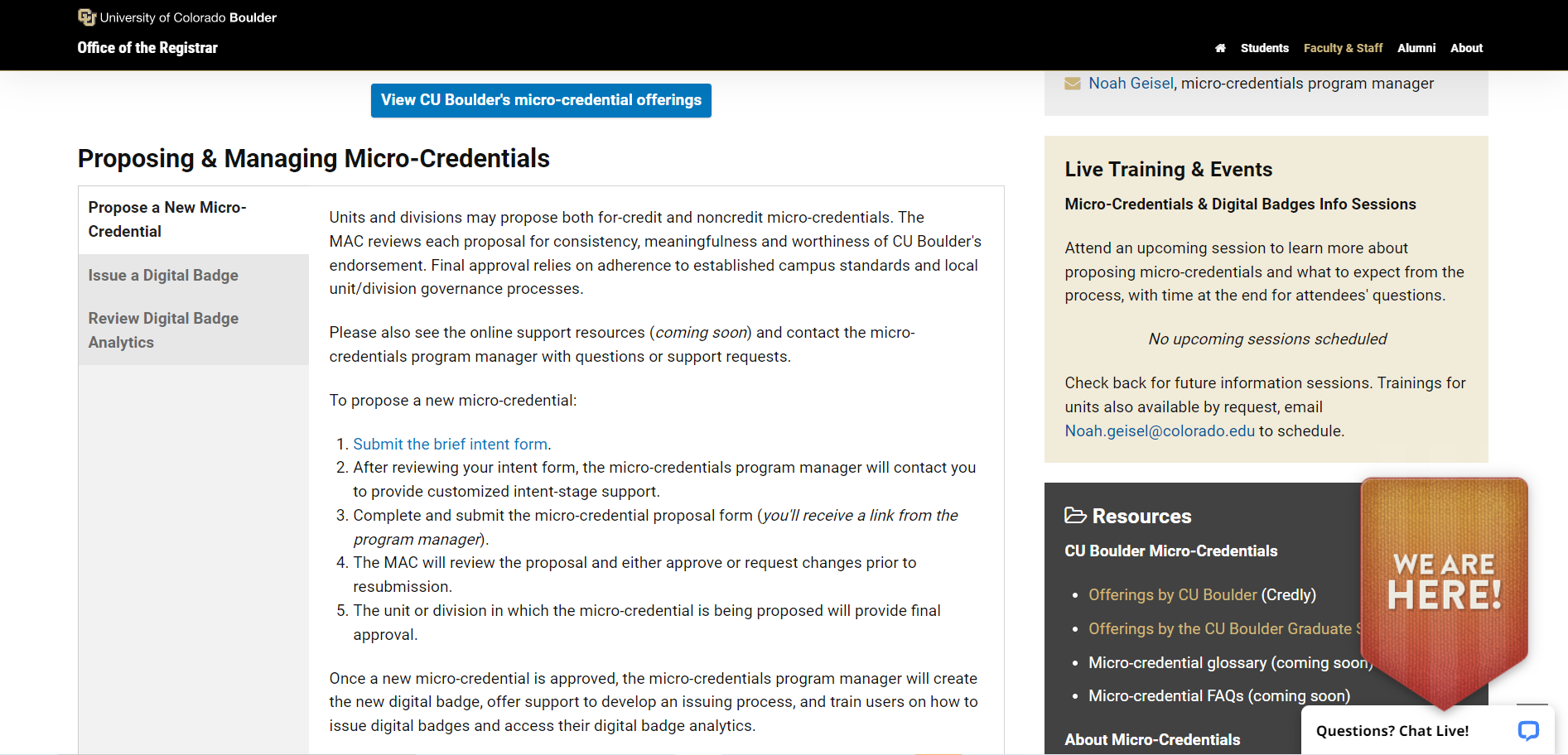11 Popular Micro-Credential Platforms
edX MicroMasters
edX MicroMasters is a platform that offers master’s-level courses online. The courses are designed by top universities and are recognized by many higher education institutions. Learners can earn a MicroMasters credential upon completion of the program, which can be used for professional development or to supplement a traditional degree.
Coursera Specializations
Coursera Specializations provide learners with a comprehensive understanding of a specific topic. The platform partners with leading universities and industry experts to provide high-quality courses, which many higher-ed institutions recognize. Learners can earn a certificate of completion for each course and a specialization certificate upon program completion.
Coursera MasterTrack Certificates
Coursera MasterTrack Certificates provide a flexible and affordable way to earn a professional credential. The programs are taught by instructors from leading universities and are recognized by many higher education institutions. Learners can earn a certificate of completion for each course and a MasterTrack Certificate upon program completion.
Udacity Nanodegrees
Udacity Nanodegrees are online programs that provide learners with practical, industry-specific skills. The courses are taught by experts in their field and are designed to apply to real-world scenarios. Learners can earn a Nanodegree upon completion of the program, which can be used for professional development or to supplement a traditional degree.
Microsoft Professional Program
The Microsoft Professional Program is a platform that provides learners with in-demand skills in areas such as data science, artificial intelligence, and cybersecurity. The program is recognized by many higher education institutions and is designed to prepare learners for a career in technology.
IBM Skills Academy
The IBM Skills Academy is a platform that provides learners with expertise in emerging technologies such as blockchain, cloud computing, and artificial intelligence. The program is accredited and recognized by many higher education institutions and is designed to prepare learners for a career in technology.
Salesforce Trailhead
Salesforce Trailhead is an online learning platform that provides learners with a wide range of courses in Salesforce skills. The courses are interactive and the platform is easy to use. The micro-credentials earned from Trailhead are recognized by many higher education institutions and can be used for professional development or to supplement a traditional degree.
Pluralsight Skills
Pluralsight Skills is a platform that provides learners with a wide range of courses in software development, IT operations, and creative fields. The platform partners with leading experts in each field to provide high-quality courses that are recognized by many higher education institutions. Learners can earn a certificate of completion for each course and a Skill IQ upon completion of the program.
Google Career Certificates
Google Career Certificates provide learners with job-ready skills in high-growth fields such as IT support, data analytics, and project management. The certificates are recognized by many higher education institutions and are designed to prepare learners for a career in technology.
Udemy Micro Courses
Udemy Micro Courses are short online courses that provide learners with new skills or knowledge in a specific area. The courses are taught by industry experts and can be used for professional development or to supplement a traditional degree.
Strada Education SkillsMatch
Strada Education SkillsMatch is a platform that provides learners with personalized recommendations for micro-credentials based on their career goals and interests. The platform partners with top micro-credential providers to offer a wide range of courses and certificates. The micro-credentials are recognized by many higher education institutions and can be used for professional development or to supplement a traditional degree.









